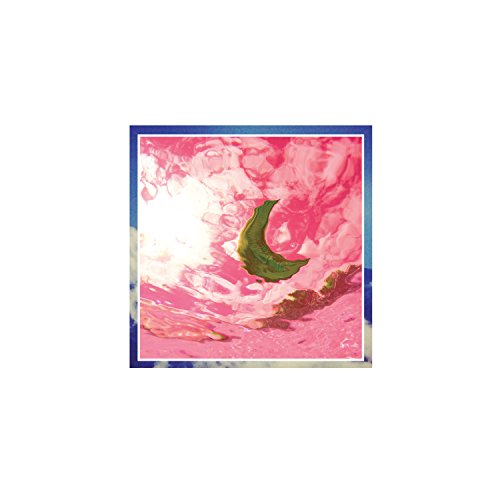
Django Django
Marble Skies
Release Date: Jan 26, 2018
Genre(s): Pop/Rock, Alternative/Indie Rock, Alternative Pop/Rock, Indie Rock, Indie Electronic, Experimental Rock, Neo-Psychedelia
Record label: Ribbon Music
Music Critic Score
How the Music Critic Score works
Buy Marble Skies from Amazon
Album Review: Marble Skies by Django Django
Great, Based on 7 Critics
Based on rating 4/5
Opener (and title track) ‘Marble Skies’ sets a pace in the first thirty seconds that rarely lets up. A bell rings, a foggy voice says something like “’Allo?” and we’re off, racing through a number that’s suitably sci-fi: “Let the water rise!” voices shout, en masse. It’s exhausting, and it’s got it all. A bold mission statement: “Take us as we are!”; a robotic break-down; an anthemic, nonsensical chorus.
Based on rating 8/10
Following 2015's excellent, if a bit too lengthy, Born Under Saturn, U.K. art-pop architects Django Django turn in a more focused though still exploratory effort with their third album, Marble Skies. Landing immediately on a signature sound can be a blessing and a curse and with their first two records, the London-based quartet have firmly established their distinctive amalgam of metered Krautrock, rockabilly guitar grooves, and richly melodic electro-pop with psychedelic flourishes.
Based on rating 4/5
Django Django, a London four-piece often decked out in matching sci-fi T-shirts like a krautrock beach volleyball team, are masters of merging flesh and diode. Earlier albums have sounded like a bunch of twitchy cyborgs playing rootsy rock’n’roll tunes, or a load of ’50s Link Wray licks and ’90s Beta Band albums uploaded onto a malfunctioning streaming service. Plenty of this kind of febrile retro-futurism still abounds on third album ‘Marble Skies’: ‘Further’, ‘Champagne’ and the irrepressible ‘Tic Tac Toe’ could be The Bees on whatever synthetic drug the dark web will come up with in 2056.
Based on rating 8/10
Scottish psychedelic pop quartet Django Django have withstood the hype well. After garnering attention for their already confident and fully-formed sound in the late 2000s (blood relations between the group and fellow Scottish greats the Beta Band were widely reported as a minor but significant detail), the band tempted fate by waiting until 2012 for a proper debut that nevertheless earned rave reviews and a Mercury Prize nomination. A similarly received followup arrived in 2015, and here we are again with Marble Skies, another frankly great ….
Based on rating 7.5/10
The first two Django Django albums felt like psychedelic foodstuff: perfectly palatable and digestible, but lacking a certain substance that warranted revisiting. What was most notable about their self-titled debut and Born Under Saturn wasn’t the songs, but rather the various flourishes, namely the use of vocal harmonies during seemingly every moment. While calling cards are nice, they shouldn’t feel like the only thing holding a band’s work together. The London band’s third album, Marble Skies, is their most tenacious to date.
Based on rating 6.9/10
Ever since their 2012 debut, Django Django have banked their popularity on their ability to mash as many genres as possible into one dense, heady sound. At their best, they sound like wide-eyed kids toying gleefully with an impressive arsenal of influences, ranging from ’60s psych to ’70s space rock, ’80s pop and ’90s indie, often within the same track. While this stylistic dexterity helped break them into the competitive independent UK scene of the early 2010s, it failed them on their overthought second record, 2015’s Born Under Saturn, where entire songs got lost in a fog of moody synths and splashy hi-hats..
Based on rating 6/10
For the curious record geek, Scotland’s artsy wranglers Django Django offered, at the very least, a proposal. Would I fancy a ramble into the wild wests and alleyways of yore, or gaze across horizons to the steam-powered, Krautrock-fuelled future? Should I contemplate the futility of all my actions in the wider scope of the universe, or just pretend that I’m the star of the indie step team? The delight of the double Django’s 2012 debut hinged on that duality – and, with that, the potentially boundless horizon for both the band and their listeners. But, to be blunt, Born Under Saturn didn’t drive anyone that far – though effortless and cool, the 2015 follow-up granted us mostly dust, traces from the trails blazed from before, and only the slightest suggestion from songs like ‘Vibrations’ or ‘Shot Down’ of a second world.
'Marble Skies'
is available now

